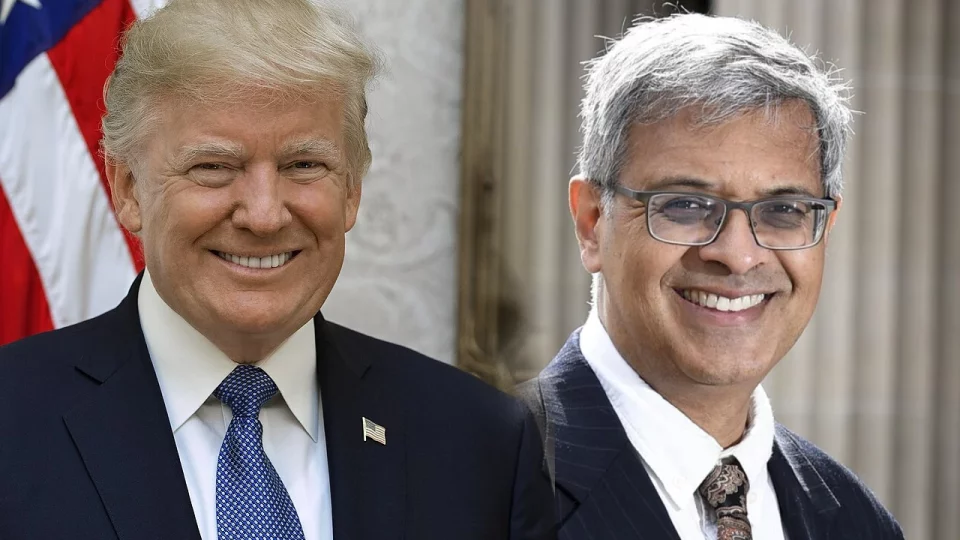President-elect Donald Trump has nominated Dr. Jay Bhattacharya, a Stanford University professor known for his controversial advocacy of COVID-19 herd immunity, to serve as the next director of the National Institutes of Health (NIH). The appointment, which comes amidst ongoing debates about public health policies in the wake of the pandemic, has drawn both praise and criticism from experts, policymakers, and the general public.
Dr. Bhattacharya’s nomination signals a potential paradigm shift in how the NIH, the largest biomedical research agency in the world, may approach public health, biomedical research, and pandemic preparedness. While his supporters praise his independent thinking and emphasis on balancing public health with economic and social freedoms, critics argue that his leadership may jeopardize the nation’s ability to respond effectively to infectious diseases.
Table of Contents
The Great Barrington Declaration and the Controversy Surrounding Herd Immunity
Dr. Bhattacharya rose to national prominence in 2020 as one of the co-authors of the Great Barrington Declaration, a public letter that proposed an alternative approach to managing the COVID-19 pandemic. The declaration, co-authored with epidemiologists Dr. Martin Kulldorff of Harvard University and Dr. Sunetra Gupta of Oxford University, called for focused protection of high-risk groups while allowing the virus to spread through low-risk populations to achieve herd immunity.
The proposal was met with immediate backlash from public health experts, including leading scientists at the World Health Organization (WHO), the Centers for Disease Control and Prevention (CDC), and academic institutions worldwide. Critics labeled the approach as impractical, ethically questionable, and potentially catastrophic.
Criticisms of the Herd Immunity Strategy
- Infection Risks for Vulnerable Populations: Critics argued that isolating vulnerable groups—such as the elderly and those with underlying health conditions—was logistically unfeasible and would result in high mortality rates.
- Strain on Healthcare Systems: Allowing widespread infections could overwhelm hospitals, leading to preventable deaths not only from COVID-19 but also from other medical emergencies.
- Long-Term Consequences: The emergence of “long COVID” and the potential for new variants raised concerns about the risks of uncontrolled viral spread.
Despite the controversy, the declaration resonated with some policymakers and citizens frustrated with prolonged lockdowns, school closures, and economic disruptions. Dr. Bhattacharya’s outspoken criticism of these measures further solidified his position as a polarizing figure in the pandemic discourse.
Dr. Bhattacharya’s Academic and Professional Background
Dr. Jay Bhattacharya is a physician, economist, and professor of health policy at Stanford University. With an MD and PhD in economics from Stanford, his academic expertise lies at the intersection of health care, economics, and public policy. Over the course of his career, he has conducted extensive research on topics such as the economics of aging, health disparities, and global health.
Key Contributions and Research
- Healthcare Economics: Dr. Bhattacharya has published influential studies on the rising costs of healthcare, the financial burdens on vulnerable populations, and the efficiency of medical interventions.
- Global Health: His work has addressed the challenges of tuberculosis, HIV, and other infectious diseases, particularly in low- and middle-income countries.
- Pandemic Policy Analysis: During the COVID-19 pandemic, his research focused on evaluating the economic and social impacts of lockdown measures.
In addition to his academic credentials, Dr. Bhattacharya has been a frequent commentator in the media, where he has argued for policies that prioritize individual freedoms and economic stability alongside public health goals.
The NIH Under Bhattacharya: What Could Change?
The National Institutes of Health, with an annual budget nearing $50 billion, is the largest public funder of medical research in the world. Its mission encompasses everything from advancing biomedical discoveries to addressing pressing public health challenges. As director, Dr. Bhattacharya would wield significant influence over the agency’s research priorities and public health strategies.
Potential Shifts in NIH Policy
- A Reassessment of Pandemic Preparedness:
- Dr. Bhattacharya has been critical of the one-size-fits-all approach to pandemic management, suggesting that future strategies may prioritize more targeted interventions over widespread mandates.
- His leadership could steer NIH research toward understanding the trade-offs between public health measures and their economic and social consequences.
- Focus on Decentralized Public Health Responses:
- Advocating for localized decision-making, Dr. Bhattacharya has argued that communities should have more autonomy in managing health crises. This philosophy could influence NIH policies to support state and local public health initiatives rather than federal directives.
- Emphasis on Individual Liberties:
- A vocal opponent of vaccine mandates and lockdowns, Dr. Bhattacharya’s appointment could lead to a reevaluation of policies that many view as infringing on personal freedoms. This stance may resonate with those who advocate for less intrusive public health measures.
- Renewed Focus on Health Disparities:
- Drawing from his background in health economics, Dr. Bhattacharya may prioritize research on the socioeconomic determinants of health and the disparities exacerbated by public health policies.
